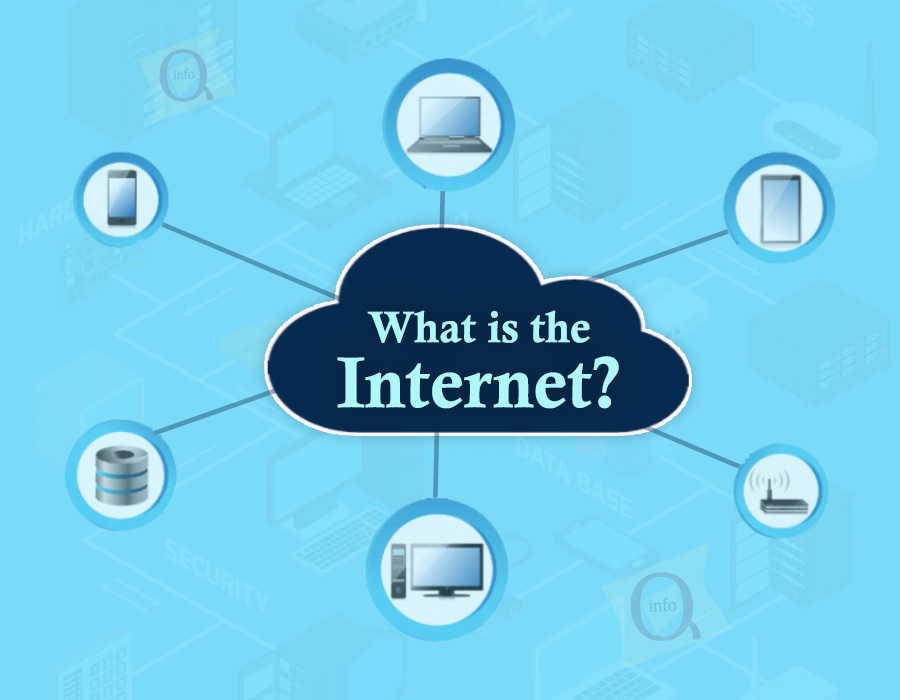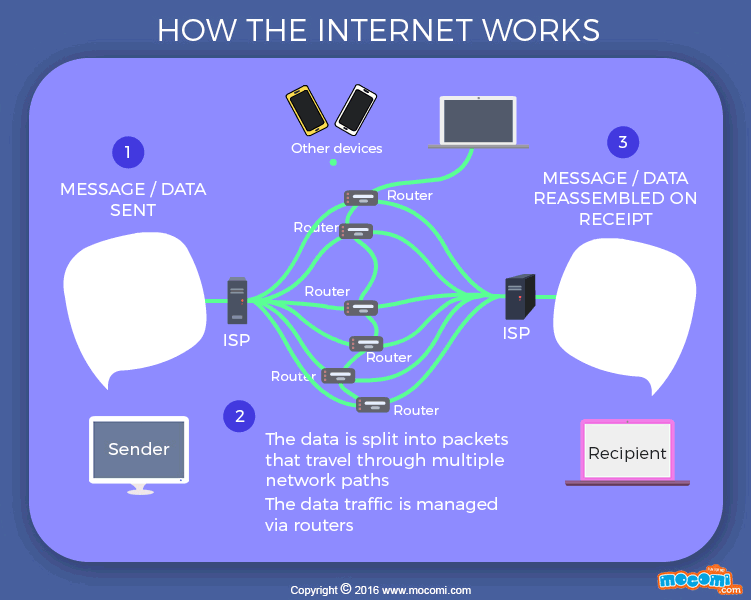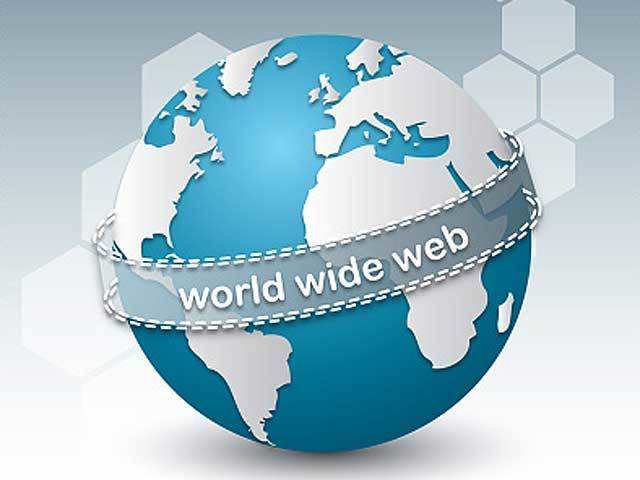What is Internet-The most crucial tool and well-known resource used by practically everyone on earth is the Internet. It links millions of computers, webpages, websites, and servers. We may communicate with our loved ones online by sending emails, pictures, videos, and messages. Or put another way, the Internet is a vast network of electronics and computers connected (that support the Internet). It produces a communication channel for online information sharing and retrieval. Only you will have access to all the applications, websites, social networking apps, and other services if your smartphone link to the Internet. The fastest method for sending and receiving information nowadays believe to be the Internet.

Origin of the Internet: The first functional version of the Internet, ARPANET, was developed in 1960. (Advanced Research Projects Agency). It was their most significant breakthrough at the time since it made it possible for several computers to operate on a single network. ARPANET uses packet switching to communicate across several computer systems on a single web. The first message was sent from one computer to another using ARPANET in October 1969. After then, technology keeps developing.
How is the Internet set up?
Physical copper or optical fibre data transmission cables and other networking infrastructure types, including LAN, WAN, and MAN, are used to set up the Internet. Even 2G, 3G, and 4G services and WiFi require this physical cable configuration to access the Internet. The management of the Internet and its associated protocols, such as IP addresses, is carried out by a body called ICANN (Internet Corporation for Assign Names and Numbers), which is improper in the USA.
How does the internet work?
Clients and servers are necessary for the actual operation of the Internet. In this case, the servers are the enormous computers indirectly connected to the Internet and house all the websites. At the same time, the clients are laptops directly related to the Internet. These servers identify by their IP addresses and connected to the Internet via ISPs (Internet Service Providers). As it is always challenging to recall long numbers or strings, each website has its domain name. As a result, anytime you enter a domain name in the browser’s search box, a request to the server, which then attempts to deduce the IP address from the domain name because it does not understand domain names. After obtaining the IP address, the server will try to locate the IP address of the domain name in a massive phone book or DNS server, as known in networking (Domain Name Server). For instance, if we see a person’s name, we may quickly get their Aadhaar number from a lengthy directory.

Therefore, the browser will forward the subsequent request to the appropriate server after obtaining the IP address. The server will then process the request to display the requested website content. If you use a wireless Internet connection, such as 3G and 4G or other mobile data, the data will begin to flow from optical cables and will first reach towers; from there, the signals will travel to your cell phones and PCs via electromagnetic waves. And if you use routers, then connecting optical fibre to your router will assist in converting those light-induced signals into electrical signals. With ethernet connections, internet access is possible on your PCs, providing the necessary data.
What is an IP address?
Internet protocol address is what is known as an IP address. Every PC or local device has an IP address given to it by Internet service providers (ISPs). When a device links to the net, some sets of guidelines control how data is a transmission. It distinguishes between computers, websites, and routers. Similar to human identification cards like Aadhaar, Pan, or any other unique identifying documents. For identifying purposes, each laptop and desktop has its IP address. It’s a crucial component of internet technology. Four digits, such as 192.154.3.29, represent an IP address. Here, each number in the set is between 0 and 255. Consequently, the entire IP address ranges from 0.0.0.0 through 255.
By selecting Network from the Windows start menu, right-clicking, then selecting Status and then Properties, you can view your laptop’s or desktop’s IP address. There are four different kinds of IP addresses available:
- Static IP address
- dynamic IP address
- Public IP address
- Private IP address
World Wide Web(WWW)
The world wide web [WWW] is a collection of all web pages and publications that can be found online by searching for their URLs (Uniform Resource Locator). For instance, the GFG website’s URL is www.geeksforgeeks.org, and its entire content, including all its sites and web documents, is kept online. Or, to put it another way, the web’s information retrieval service. It offers users access to a vast collection of documents that link to one another using hypertext or hypermedia links. Hypertext allows users to pick a word or phrase from a text and use that word or phrase to access other documents that contain additional information relates to that word or phrase. Hyperlinks are electronic connections that link the related data so that users can easily access the related information. For scientists at CERN to collaborate successfully, Timothy Berners-Lee developed the world’s vast web project in 1989. World Wide Web Consortium (W3C) is a company that promotes web innovation.

Difference between Worldwide Web and the Internet
The following are the ways that the net and the world wide web differ:
The World Wide Web is where all the web pages and documents usual, and each website has a unique URL that can use to access its contents. In contrast, the Internet is a vast computer network that can access through the World Wide Web.
- The Internet is an infrastructure, but the world wide web is a service.
- The Internet is a superset of the Internet, whereas the world wide web is a subset of the Internet.
- The Internet is hardware-oriented, whereas the world wide web is software-oriented.
- IP addresses are used on the Internet, while HTTP uses on the world wide web.
- The Internet is comparable to a library, and all many types of content, including books on various topics, can be compared to the Internet.
Uses of the Internet
Among the crucial applications of the Internet are:
Online businesses (E-commerce): Online shopping websites have simplified our lives. E-commerce companies like Amazon, Flipkart, and Myntra offer dazzling services with a single click, which is a terrific way to utilise the Internet.
Cashless Transactions: All retailers allow their consumers to pay for their purchases online using various digital payment apps, such as Paytm, Google Pay, etc. The number of UPI payment gateways grows daily as well. The Internet also contributes to digital payment businesses’ 50% annual growth.
Education: This feature of the net makes a tonne of instructional content available to everyone through any server on the Internet. Those unable to attend traditional classrooms can select any course from the and learn everything there is to know about it while sitting at home. With the aid of the Internet, elite academics are teaching online via technological platforms and giving students a top-notch education.
Social networking: The objective of social networking websites and applications is to link individuals worldwide. We may communicate with our loved ones far away through social networking sites by talking to them and sending them movies and pictures. Additionally, we can establish groups for meetings or discussions.
Entertainment: Internet use for amusement is also standard. The Internet offers various entertainment possibilities, including watching movies, playing games, and listening to music. Additionally, downloading movies, games, songs, TV shows, etc., from the net is simple.
Advantages of the Internet
Online Banking and Transactions: Using the net banking system, the enables online money transfers. One account can credit or debit another with money.
Education, online employment, and freelancing: are all made possible by the allowing us to connect with additional employers and job providers. But on the other hand, freelancing has enabled young people to earn a side income, and the most significant part is that it can all be entirely online.
Entertainment: There are many ways to pass the time online. We can watch movies, play games, listen to podcasts, watch web series, and listen to music. In addition, YouTube itself is a wealth of information and entertainment.
New job roles: include those in digital marketing and social media marketing. The Internet is possible for us to access social media and digital items. Due to the Internet’s role as a tool to facilitate our activities, online firms are raising enormous sums of money.
Favourite Method of Communication: The no longer serves as a barrier to communication. Email, WhatsApp, and Facebook are all ways to communicate. In addition, you may conduct critical meetings online using voice chat and video conferencing tools as well.
People’s comfort: You can do many things without exerting physical effort, like shop online for anything from stationery to clothing, books to personal products, etc. can order tickets for trains and aeroplanes.
Using Google Maps and GPS tracking: you may use the Internet to locate any route in any direction, including regions with little to no traffic.
Disadvantages of the Internet
Internet time wastage: Instead of reading through social networking apps and doing nothing. One should use that time to accomplish something worthwhile and even more productive.
Harmful impacts on your health: Spending too much time online negatively affects your body, which needs exercise, outside activities, and other things. In addition, more extended periods of screen time have detrimental effects on the eyes.
Cybercriminal Activity: Cyberbullying, spam, viruses, hacking, and data theft are just a few of the crimes on the rise nowadays. Cybercriminals can quickly break into your system, which houses your private information.
Effects on children: Watching movies and playing games constantly on bad for young kids’ social and personality development.
Bullying and spreading negativity: The Internet has provided a free tool in the shape of social media apps to all those who constantly attempt to spread negativity with incredibly revolting and shameful words and try to bully each other, which is unacceptable.
Conclusion:
The Internet is an endless source of information and entertainment since it has billions of web pages that individuals and businesses have generated worldwide. In addition, numerous other services make life more convenient. For instance, many financial organisations provide online banking services that let customers manage and access their accounts from various places. The image shows a map and representation of the Internet created by The Opte Project.
Also read: What is a Database? Uses, Types, and Many More








GIPHY App Key not set. Please check settings